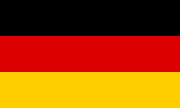Belgorod
| Belgorod (English) Белгород (Russian) |
|
|---|---|
| — Inhabited locality — | |
The Shchepkin Belgorod State Drama Theatre |
|
 Belgorod
|
|
| Coordinates: | |
 |
 |
| Holiday | 5 August |
| Administrative status | |
| Country | Russia |
| Federal subject | Belgorod Oblast |
| Administrative center of | Belgorod Oblast |
| Municipal status | |
| Urban okrug | Belgorod Urban Okrug |
| Mayor | Vasily Nikolayevich Potryasaev |
| Representative body | City Duma |
| Statistics | |
| Area | 153.1 km2 (59.1 sq mi) |
| Population (2002 Census) | 353,300 inhabitants[1] |
| - Rank | 51 |
| - Density | 2,308 /km2 (5,980 /sq mi)[2] |
| Time zone | MSK/MSD (UTC+3/+4) |
| Founded | 1596 |
| Postal code(s) | 308000 |
| Dialing code(s) | +7 +7 4722 |
| Official website | |
Belgorod (Russian: Бе́лгород; Ukrainian: Бєлгород) is a city in western Russia, situated on the Seversky Donets river just 40 km north from the Ukrainian border, at . It is the administrative center of Belgorod Oblast. Population: 337,030 (2002 Census). Belgorod is served by Belgorod International Airport (EGO)
Contents |
History
The name Belgorod in Russian literally means "a white city", name being a compound of бе́лый (bélyj, “white, light”) and го́род (górod, “town, city”). The city was thus named after the region being rich in limestone. Etymologically, it corresponds to other Slavic city names of identical meaning: Beograd, Białogard, Biograd etc.
The settlement was first mentioned in 1237, when it was ravaged by the hordes of Batu Khan. In 1596 it was refounded by the order of Boris Godunov as one of numerous forts set up to defend Southern borders from the Crimean Tatars.
After the Russian border was moved further south, the fortress fell in disrepair and the town was assigned to the Government of Kursk. Peter the Great visited it on the eve of the Battle of Poltava, and a dragoon regiment was stationed in the town until 1917.
It was occupied by Nazi Germany in October 25, 1941. During the great Battle of Kursk, the village of Prokhorovka in Belgorod Oblast was a stage of the largest tank battle in the world history (July 12, 1943). It was finally liberated in August 22, 1943 after this battle. The renowned World War II monuments include the Belgorod Diorama and a huge cathedral in Prokhorovka among others.
Belgorod is an administrative, industrial and cultural center of Belgorod Oblast, established in 1954. The major educational centeres of the City are Belgorod State University, Technological University, Agricultural Academy, Financial Academy.
Belgorod Drama Theater is named after one of the famous 19th-century actors Mikhail Shchepkin who was born in this region.
Famous people
- Miss Svetlana Khorkina, a two time Olympic champion gymnast was born in Belgorod on January 19, 1979. A statue of Miss Khorkina is displayed in front of the Sports Center that has been built in her honor.
- Natalia Vladimirovna Zuyeva (Russian: Наталья Владимировна Зуева) (born October 10, 1988, in Belgorod, Soviet Union) is a Russian gymnast and Olympic champion.
City okrugs
Belgorod is divided into two city okrugs (districts):
- Vostochny, population: 141,709 (2002 Census);
- Zapadny, population: 195,321 (2002 Census)
Buildings and structures
International relations
Twin towns — Sister cities
Belgorod is twinned with:
 Wakefield, England, United Kingdom
Wakefield, England, United Kingdom Herne, North Rhine-Westphalia, Germany
Herne, North Rhine-Westphalia, Germany Palembang, South Sumatra, Indonesia
Palembang, South Sumatra, Indonesia Opole, Poland
Opole, Poland
References
- ↑ Федеральная служба государственной статистики (Federal State Statistics Service) (2004-05-21). "Численность населения России, субъектов Российской Федерации в составе федеральных округов, районов, городских поселений, сельских населённых пунктов – районных центров и сельских населённых пунктов с населением 3 тысячи и более человек (Population of Russia, its federal districts, federal subjects, districts, urban localities, rural localities—administrative centers, and rural localities with population of over 3,000)" (in Russian). Всероссийская перепись населения 2002 года (All-Russia Population Census of 2002). Federal State Statistics Service. http://perepis2002.ru/ct/html/TOM_01_04_1.htm. Retrieved 2009-08-19.
- ↑ The value of density was calculated automatically by dividing the 2002 Census population by the area specified in the infobox. Please note that this value may not be accurate as the area specified in the infobox does not necessarily correspond to the area of the entity proper or is reported for the same year as the Census (2002).
External links
- (Russian) Official website of Belgorod Shukhov State Technological University
- (English) Belgorod city views and sceneries
- (English) Belgorod,the golden gate of South Russia
|
||||||||||||||
|
|||||
| This Belgorod Oblast location article is a stub. You can help Wikipedia by expanding it. |